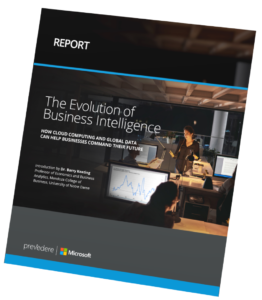Last Updated: November 13, 2018
Climate changes are ongoing and it has become important to discuss how managing the financial impacts of climate change with real-time data can assist businesses to plan most effectively. Experts expect the effects of climate change will be more wide-reaching and harder hitting than previous estimates have suggested, according to a recent international report.
Serious impacts will include stronger storms, more erratic weather, dangerous heat waves, rising seas, and large-scale infrastructure disruption becoming more common.
Knowing these changes are coming, companies need to be factoring these trends into both their short- and long-term planning. Those most affected by weather patterns and seasonality, like manufacturers and the travel and hospitality industry, need to pay particular attention to climate data to manage their risk exposure.
Real-Time Insights on How Climate Change Impacts Business Performance
With hurricane season not winding down for another month, consider three metrics by which hurricanes have gotten worse since the beginning of the 20th century:
- Number of storms per year
- The strength of each storm
- Rate of intensification
Because of the warming Atlantic Ocean, there are now more storms forming per year of a larger size and at a faster speed, than at any point in the past century. Typically, it takes storms several days to a week to grow into a hurricane. Recent storms, however, including Hurricanes Maria, Harvey and Michael have bucked this trend leaving companies in coastal communities and beyond little time to prepare.
In the short term, major storms like these can disrupt supply chains, ruin inventory, slow productivity and affect transportation costs. In the long term, hurricanes and severe weather can damage infrastructure and permanently displace workers.
Following a major storm, retail and CPG companies may need to downgrade their local expectations and lean more heavily on their e-commerce offerings, where products can be delivered to consumers in the affected areas.
Past hurricanes have also shifted spending from discretionary items like electronics and travel to disaster-recovery necessities like building materials, impacting business performance in affected areas, though these are not always seen at the national level.
How Businesses Can Weather the Financial Impacts of Climate Change with Real-Time Data

While storms are unpredictable, companies can better predict the effect of severe weather on consumer demand and business performance. Unfortunately, traditional time series modeling does not properly account for the changing climate.
Instead, companies need to look at real-time, external data that can help them mitigate risk by creating models that offer better insights. By incorporating potential weather risks into business planning, companies can be prepared in the case of extremes and create a competitive advantage.
Prevedere can provide real-time alerts for how the effects of climate change might shape industry and company performance by constantly monitoring the world’s data, including weather patterns and climate data.
Schedule a demo today to learn more about how Prevedere can help companies manage seasonal risk.
***
 Business Intelligence Report: Using AI-powered tools to predict consumer demand is a great way to phase in the adoption of AI technology within an organization. To learn more about how to upgrade your organization’s business intelligence efforts, download our new whitepaper, The Evolution of Business Intelligence, made in partnership with Microsoft and the University of Notre Dame’s Dr. Barry P. Keating. Full report >>
Business Intelligence Report: Using AI-powered tools to predict consumer demand is a great way to phase in the adoption of AI technology within an organization. To learn more about how to upgrade your organization’s business intelligence efforts, download our new whitepaper, The Evolution of Business Intelligence, made in partnership with Microsoft and the University of Notre Dame’s Dr. Barry P. Keating. Full report >>